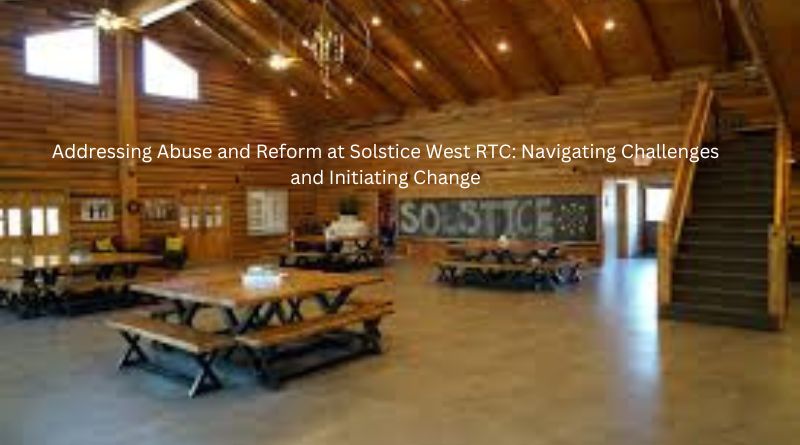Introduction:
In recent years, the issue of abuse within residential treatment centers (RTCs) has gained significant attention, particularly concerning establishments like Solstice West RTC. As allegations of abuse surface, it becomes imperative to delve into the challenges faced by such institutions and explore avenues for reform. This article aims to provide a comprehensive examination of the situation, shedding light on the nature of abuse at Solstice West RTC and proposing strategies for initiating meaningful change.
Understanding Solstice West RTC:
Solstice West RTC is renowned for its therapeutic approach to helping adolescents struggling with various behavioral and emotional issues. Situated in a serene environment, it aims to provide a supportive and structured setting for young individuals in need of intervention. However, recent reports have cast a shadow over its reputation, with allegations of abuse emerging from former residents and staff members.
Unveiling the Abuse:
The allegations of abuse at Solstice West RTC range from emotional manipulation and neglect to physical and sexual assault. Former residents have recounted harrowing experiences of mistreatment and trauma, raising serious concerns about the safety and well-being of vulnerable adolescents entrusted to the facility’s care. These revelations have sparked outrage and calls for accountability from both the public and regulatory authorities.
Challenges in Addressing Abuse:
Addressing abuse within Solstice West RTC poses numerous challenges, primarily stemming from the complex dynamics inherent in such institutions. Legal hurdles, confidentiality issues, and the reluctance of victims to come forward hinder efforts to investigate and prosecute perpetrators effectively. Moreover, the power differentials between staff members and residents often perpetuate a culture of silence and fear, further complicating the resolution of abuse allegations.
Initiating Reform:
Despite the formidable obstacles, there is a pressing need to initiate reform at Solstice West RTC to ensure the safety and well-being of its residents. This entails implementing robust oversight mechanisms, enhancing staff training on ethical conduct and crisis intervention, and fostering a culture of transparency and accountability. Collaborating with regulatory bodies, advocacy groups, and mental health professionals can facilitate the development and implementation of comprehensive reform measures.
Empowering Survivors:
Central to the reform process is empowering survivors of abuse to speak out and seek justice. Providing survivors with access to trauma-informed care, legal assistance, and peer support networks can help alleviate the psychological and emotional toll of abuse and facilitate their healing journey. Additionally, creating avenues for survivors to share their experiences and contribute to policy reforms empowers them to reclaim their agency and enact meaningful change.
Conclusion:
The allegations of abuse at Solstice West RTC underscore the urgent need for systemic reform within residential treatment centers. By acknowledging the challenges, advocating for survivors, and spearheading initiatives for change, stakeholders can work towards creating safer and more accountable environments for vulnerable adolescents. Through collective efforts and unwavering commitment, we can pave the way for a future where abuse is no longer tolerated, and all individuals receive the care and support they deserve.
Read also: check

